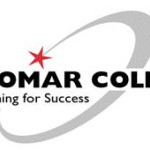- 産業: Education
- Number of terms: 12355
- Number of blossaries: 0
- Company Profile:
Founded in 1946, Palomar College is a public two-year community college in the city of San Marcos, located in north San Diego County, California. Palomar offers over 300 associate degree, certificate programs and is designated by the U.S. Department of Education as an Hispanic-Serving Institution ...
Early primate-like mammals that evolved 65-60 million years ago, shortly after the end of the last dinosaurs.
Industry:Anthropology
Defective developments of the brain or spinal cord. By the mid embryonic stage (5 weeks in humans), a neural tube extends from the top of the head to the lower end of the spinal column. Later, this tube becomes the brain and spinal chord. Spina bifida and anencephaly are examples of neural tube defects.
Industry:Anthropology
Constriction or narrowing of blood vessels so that a decrease in flow occurs. See vasodilation.
Industry:Anthropology
Conception; the process of sexual reproduction by which the chromosomes from a sperm cell enter the nucleus of an ovum and combine with its chromosomes to create a zygote.
Industry:Anthropology
Cold, treeless regions having permanently frozen subsoil (permafrost ) that only supports extremely hardy low-growing vegetation such as lichens, mosses, and stunted shrubs (in the summer).
Industry:Anthropology
Chromosomes that are paired during meiosis. Such chromosomes are alike with regard to size and also position of the centromere. They also have the same genes, but not necessarily the same alleles, at the same locus or location. All autosomes and the sex chromosomes of females occur in homologous pairs. The sex chromosomes of males are mostly hemizygous.
Industry:Anthropology
Changes in the body in response to environmental stresses such as high or low temperatures, intense ultraviolet radiation from sun light, or high altitude. The anatomical and physiological changes made in acclimatization are usually reversible.
Industry:Anthropology
Any remains or traces of ancient organisms. Often fossils are mineralized bone, though they have also been found in the form of casts, molds, animal tracks, frozen or desiccated bodies, and creatures trapped in amber.
Industry:Anthropology
